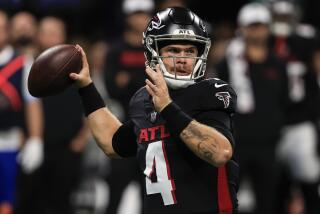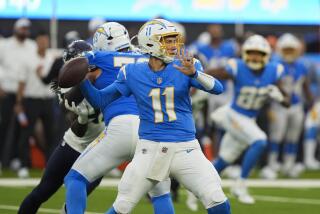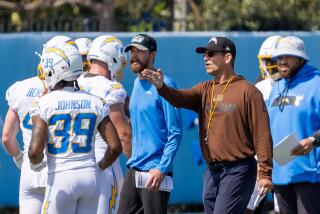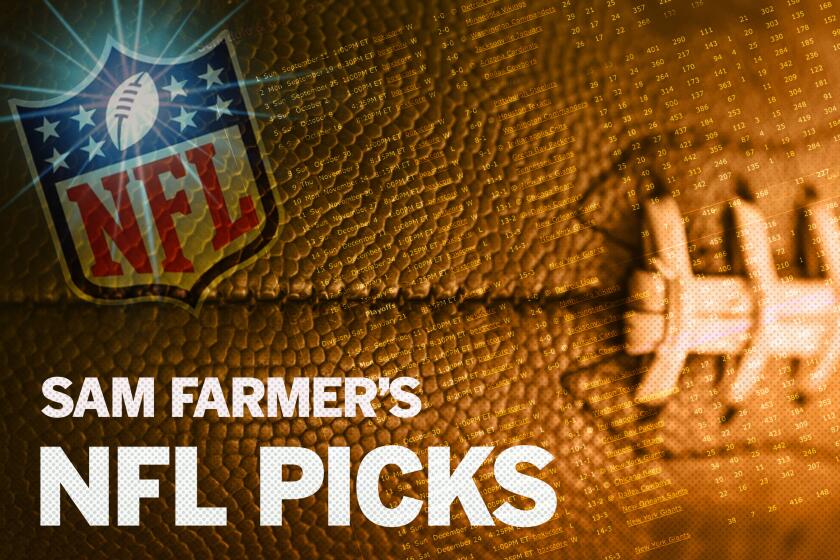Chargers plan for every NFL draft scenario, but be prepared for surprises
If the NFL draft was held in a vacuum — no surprises, no trades up, no crazy reaches and no cascading falls — the Chargers would know who they’re taking with the No. 17 pick of the first round Thursday evening.
The evaluations are done. The grades are in.
But it absolutely, 100% doesn’t work that way, and that’s why in the final hours leading up to this thing, Chargers general manager Tom Telesco and his staff don’t know who they’ll select first.
In the final few days of contemplation, Telesco and staff have been running through scenarios; doing mock drafts to try to best prepare.
Earlier this week, Telesco assigned scouts and coaches to take control of a team and study the roster needs so they could hold a mock draft together.
“We’ll go through that exercise [Tuesday]. It’s actually pretty fun to do and it’s helpful ...” Telesco said. “I kinda like it when some things go off the rails a bit because it gives us some more things to think about and talk about.”
Part of this exercise is trying to find the scenarios where a trade up or down makes sense.
“We’ll go through different scenarios of where guys would go and what we would do because draft day, you can’t have those discussions,” Telesco said. “It’s hard enough making decisions with the clock ticking down in front of you. You can’t have those long discussions at this point. You have to have that decided.
“There will be certain trigger points in a round, depending on who is there, where we might start talking about trading up or trading back or stand pat.”
Everything is on the table right now because the draft demands it, requiring the flexibility of a team picking in the middle of the first round to pounce if an opportunity presents itself — move up or wait to see how the picks fall.
“It’s just more scenarios you have to work through in trying to know the process of what’s in front of you,” Telesco said. “It takes a lot of preparation.”
They’ve put in the work. Here’s where it could lead …
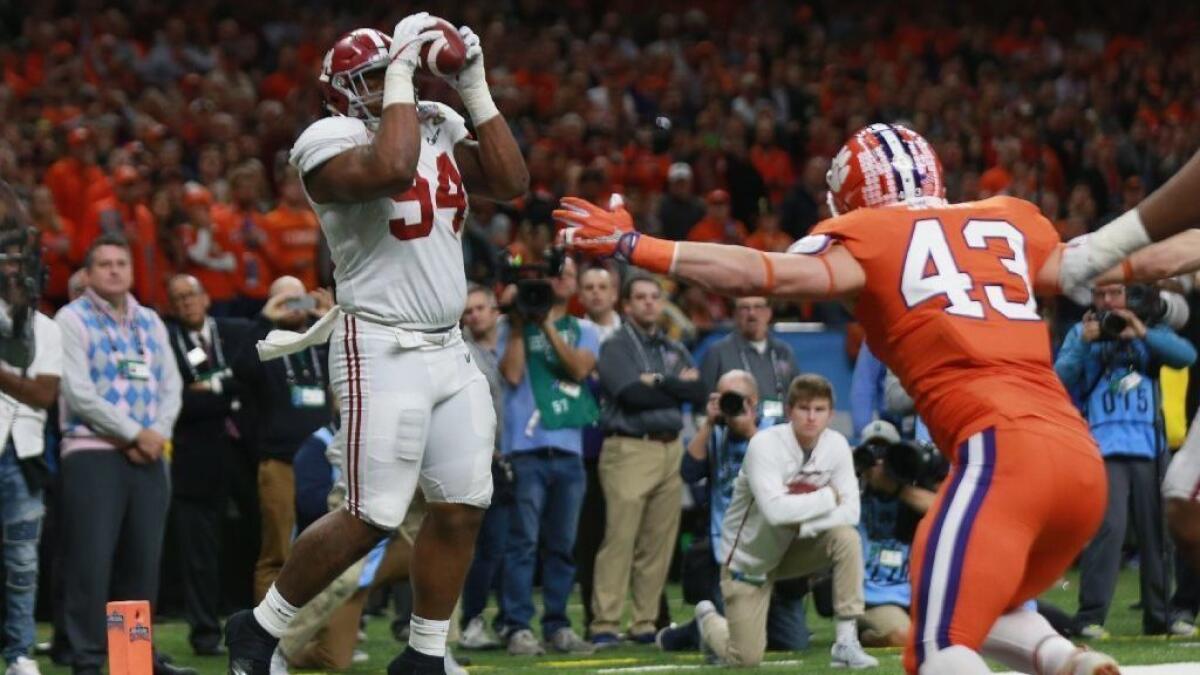
DT Da’Ron Payne
Argument for: Payne has a huge body (6-foot-3, 311 pounds) and was a force in the middle of Alabama’s defensive line, performing at college football’s highest level. He’s a big-time player against the run and seems pretty polished. He checks a lot of boxes for the Chargers and very well could be the pick at No. 17.
Argument against: You’d want Payne to be a more accomplished pass rusher, especially with more downs spent in passing situations.
LB Rashaan Evans
Argument for: The Chargers absolutely need help at linebacker, and Evans, another Alabama product, is NFL-ready. He’s a good athlete who improved while playing behind big names, speaking positively about his perseverance and work ethic.
Argument against: While the Chargers need linebackers, do they need one this early? They’ve found starters in later rounds in Jatavis Brown and Kyle Emmanuel, and could do it again with a deep class this year.
T Mike McGlinchey
Argument for: The top offensive tackle on most boards, the former Notre Dame captain is a pro-ready offensive lineman who would add youth to the outside of the offensive line, where the Chargers need help most.
Argument against: The Chargers used two of their first three picks on linemen last season and there are intriguing prospects who could be on the board in Rounds 2 and 3. There are in-house options too, including last season’s starter, Joe Barksdale.
QB Lamar Jackson
Argument for: He could be the best quarterback prospect in this draft, thanks to his superior athleticism and ability to force defenses to account for his running. Oh, and he has a big-time arm too.
Argument against: The Chargers already have a starting quarterback and a first-round pick spent on his replacement would mean a second straight year without an immediate impact from the top selection. You’d want Jackson to be more accurate when he’s on the move too.
Guys who drop
Argument for: There will be top 10 talent that falls because of curveballs all but guaranteed to happen. When it does happen, the Chargers could move up and add a big-time talent. Safeties Derwin James or Minkah Fitzpatrick appear to be obvious picks if either were available. Same goes for linebackers Roquan Smith and Tremaine Edmunds.
Argument against: Moving up is always risky, especially in this draft where most agree there is a lot of talent in the second, third and fourth rounds.
Wild cards
Argument for: There are a few players the Chargers could take who are almost universally being selected later than No. 17 in mock drafts, but they could still help. UCLA offensive tackle Kolton Miller, Stanford safety Justin Reid and Boise State linebacker Leighton Vander Esch might be considered “reaches,” but if the Chargers’ evaluations say otherwise, any could end up as the pick.
Argument against: It’s always a risk when you see something other evaluators don’t, but Telesco has said the team would trust its draft board. Still, it could be more advantageous to move back a few spots, if possible, if this is the route the team wants to go.
Twitter: @DanWoikeSports
More to Read
Go beyond the scoreboard
Get the latest on L.A.'s teams in the daily Sports Report newsletter.
You may occasionally receive promotional content from the Los Angeles Times.
